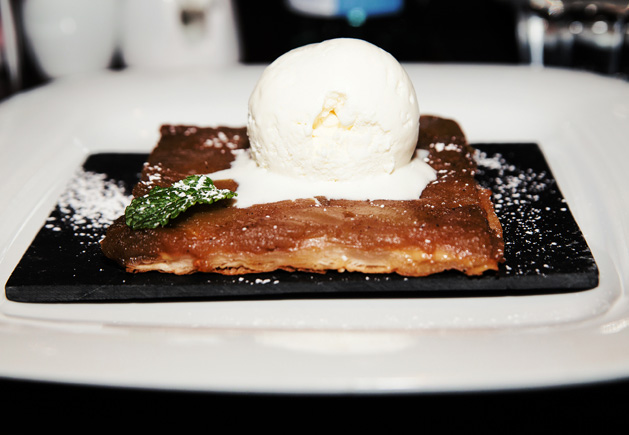Ask a silly question

Most times when I stay in a hotel, I subsequently receive a guest satisfaction questionnaire.
I often fill it in but never get to hear whether or not my input was helpful or acted upon.
Questionnaires are relatively cheap to manage and are capable of achieving mountains of ‘hot’ data. The results of a questionnaire can usually be quickly and easily quantified by a researcher or via a software package. And the content can be analysed more scientifically and objectively than many other forms of research. And hey, don’t we all just love telling our favourite airline, gym or hotel what we thought of our experience?
But there is a massive disconnect between valuable intelligence and asking guests annoying and superfluous questions, such as, ‘Was your hotel bathroom clean?’ I don’t know about you but I am guessing that you would never stay in a hotel where there is any possibility that the bathroom might not be clean. ‘Were the bar staff nice to you?’ is just as inane. Why would a hotel decide, in a questionnaire, to elevate you to head of housekeeping or bar manager and by definition make you responsible for ensuring that staff are doing their jobs? Unpaid, by the way.
For a questionnaire to be powerful, the information gathered needs to be rich. It needs to tell the researcher something about the customer or guest. Why they choose you, what they like about you, what changes they would like to see (no, not more cleaners). Guests want to know that they are appreciated for choosing you.
So collecting irrelevant data may ensure that the insights department can claim to be on the case, but it is often a question of ‘rubbish in, rubbish out’. Hotels may like these old-fashioned questionnaires as a method of scoring and benchmarking their services. But as everyone is looking for differential advantage, surely a review and update can’t be out of the question?
And talking of favourite airlines and gyms, here goes. For years I have travelled all over the world helping clients build their brands. Because I am good at what I do, I have been fortunate enough to fly business class most of the time.
I am a card holder with BA, I have a profile logged with them and I have over the years filled in dozens of questionnaires like the ones we are discussing. But BA constantly bombard me with offers of cheap flights. They even occasionally serve me up a vegetarian inflight meal even though I have never checked the ‘Are you a vegetarian?’ question. They quite simply don’t have the ability to make me believe that they have any idea about the reasons for my patronage of their airline. And gyms and health clubs fall into exactly the same trap. The one where I only played tennis for the last ten years bombarded me with offers and emails about their crèche and dance activities. Which is fine, but hey, I really would like them to acknowledge the fact that I have a great interest in tennis. That’s why I joined their club in the first place and it’s the only reason that I stay. Send me a voucher for a free coaching lesson! Make me think, “Now I know they know who I am and what I like. Now I know that they care about me.”
Companies often collect data that helps them learn things about their own business (OK, I get that) but very little about their customers. A missed opportunity! Even worse, the result is that they often send out poorly targeted emails containing irrelevant and annoying information. Isn’t it all just a sad waste of time and actually quite counter-productive?
I was speaking to a friend who works in hotel marketing recently. He told me that even if hotel questionnaires were far more advanced in terms of gathering rich customer data, however enlightening, it would be difficult to deliver on the diverse wants and needs of the individual guest. Hotels look for streamlined ‘one size fits all’ processes and so they may struggle when it comes to pleasing numerous individuals. But Tesco has to do that every day with a footfall that runs into hundreds of thousands every hour, many using one of the 35 million Club Cards in circulation to process more than 44,000 different product lines in some of the bigger stores. And Tesco will never contact you about something that you don’t buy. But they will offer you promotional offers based on the Club Card data, which knows more about you than your mother.
Tesco knows that knowledge is power. For them, it results in £1 in every £7 flowing around the UK economy being spent with them. So why are hotels so slow to capitalise on the opportunities of proper data capture and utilisation?
Another industry that has to know everything about their clients is the matchmaking business. Dating sites, so I am told, need to know even more about their customers than any other business as their product is based on accurate profile matching, which can only come from data. No data, no business.
So they ask:
- What is the one thing about yourself that you would like us to know?
- What are you looking for in a relationship?
- What do you think is the most important value in a relationship?
- What is your favourite month of the year and why?
- What is your favourite book or movie?
…and so on. But these questions are gaining necessary insights into their clients’ personalities and will be used to try and introduce an individual to a potential partner with similar behaviours, outlooks and preferences.

And this is not a million miles away from what brands should be achieving with their own data gathering initiatives. If a hotel questionnaire were to ask me:
- Do you like chocolate?
- Do you like open or closed top bins in the bathroom (OK, closed is annoying but more hygienic)?
- Do you like upper or lower floors?
- What is the most single important aspect when choosing a hotel?
- What would your fantasy minibar contain?
- Would you like to be given a personal contact name/person during my stay?
- Would you like that person to contact you during your stay? (If he or she did they could log any requests, comments or complaints on my profile for next time I stay.)
The more we know about our customers the better we can avoid annoying them, whilst at the same time providing above average service and recognition of their loyalty.
We all like talking about ourselves. And we are often willing to take part in surveys. But surveys need updating, they need to move away from simple scoring on a 1 to 10 basis. Current surveys can tell a hotel that its cleanliness gets a 7 or a 10, but it should know that already. What it doesn’t know is why its clients have an emotional bond with the brand and how, by knowing more about guests’ hates, likes and preferences, it can strengthen that bond. And have you ever noticed that on many surveys the comments sections are massively subservient to the mind-numbing lists?
Of course, if one guest can’t live without a luxury chocolate on their pillow, another demands a hypoallergenic pillow and another wants condoms and vodka in their minibar, it can present the hotel with an operational nightmare. But whether you are running a budget, no frills hotel or an upscale seven-star operation knowledge is power. And that power more than ever lies with the guest. OK, it’s hard work and it takes management into areas where they might have to learn new tricks and work a bit harder. If that’s what it takes, so be it. They’re lucky that they are in a sector that can’t be taken out by the internet – but they can learn from businesses that have to compete in that arena every day.
Find out why customers would want to ‘date’ you. What you do with the information is up to you. But somewhere along the line there will be a greatly enhanced guest data gathering system with a software solution that links all key guest preferences to Opera or Delphi or similar and transmits the data to guest relations and in-room service staff. In the meantime, let’s find out what guests really want so that when we try and persuade them to return to our airlines, gyms and hotels we can communicate with them in a relevant and meaningful way. Easy.
And no, I don’t want to go to Bratislava for £15 return.
For evolving business innovation and marketing solutions ask LAW Creative, a multi-award winning hotel and leisure marketing agency. Please contact keith.sammels@lawcreative.co.uk
